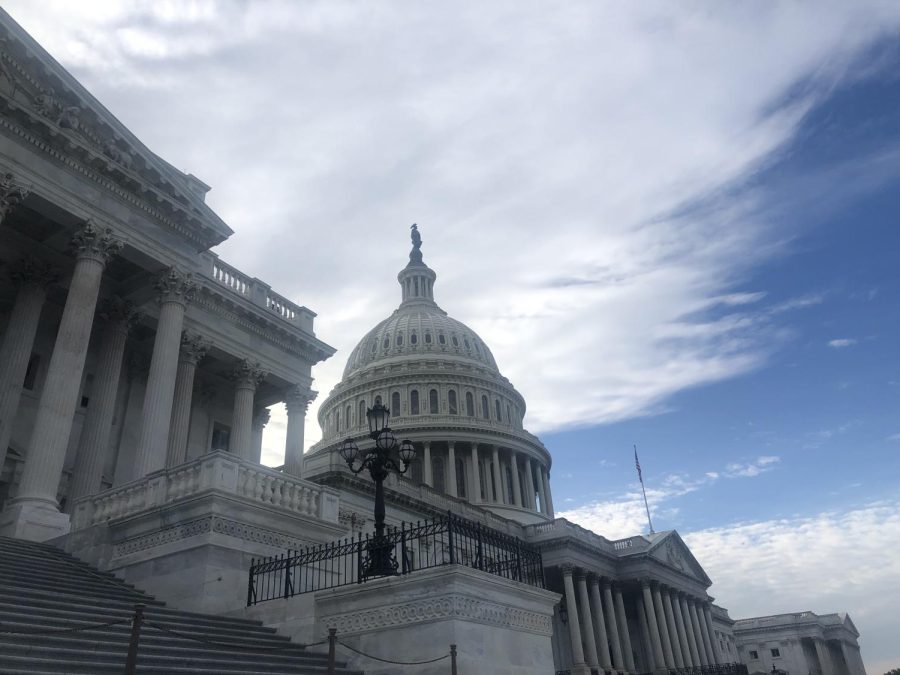Five hundred and thirty-five members of the United States House of Representatives and the Senate are supposed to speak for the American people as Congress, but most do not truly represent the people they claim to speak for on the political stage.
Seventy percent of congressional members attended graduate schools, 95% worked white-collar jobs and 80% possessed previous political power before joining Congress. Many of these opportunities are out of reach of everyday Americans, therefore determining Congress as the unofficial ruling class of the American people.
America deserves public servants who are competent, but currently most of those in power abuse it and focus on their personal pursuit of profit.
Congress has the duty to debate and negotiate policies that affect everyday life, including economic policies. Like every American, members of Congress also have the opportunity to engage in the free market, more widely known as the stock market.
These practices pose a problem, as Congress knows when or if specific policies would be put into place that would affect the stock market before the general public does, giving them an unfair advantage.
This practice is called “insider trading,” which is illegal in the U.S. and has seen multiple revisions to expand its enforcement. First with President Ronald Reagan in 1988, and then with President Barack Obama in 2012 with the Stop Trading on Congressional Knowledge Act, otherwise known as the STOCK Act.
The STOCK Act prohibits Congress from using non-public information for their personal gains, thereby requiring members of Congress and their immediate families to disclose their trades on the stock market within 45 days of making them.
Recently, it seems as though some members of Congress have been violating the terms of the law.
Fifty-four Congress members were found to violate the STOCK Act due to oversight and error by accountants or clerks throughout 2021. Some of these “errors” amass to millions of dollars worth of stock trades. Members of note include Senator Rand Paul, whose wife bought into Gilead Sciences, a company that now makes a COVID-19 antiviral drug, and Senator David Perdue, who bought into Pfizer and Netflix. Both of these exchanges happened early on in the COVID-19 pandemic or before. Representative John Yarmouth bought cannabis stock while promoting bills that would support the budding industry.
Congress sold more than $364 million worth of assets last year. The punishment for violating the STOCK Act is only $200. This $200 fine is barely a dent into their salaries, as a congressional member has an average salary of $174,000.
Some members of Congress, such as Representative Alexandria Ocasio-Cortez, have spoken out against the unfairness and inequality displayed in Congress, and 27 lawmakers have signed a letter to ban owning and trading stocks while in office.
House Speaker Nancy Pelosi spoke out against this in December, saying that America is a free market and Congress should be able to participate in that. However, it should be noted that TikTok users watch Pelosi and her husband closely to follow their stock market exchanges, calling her a “psychic” and the “queen of stocks.”
After criticism, Pelosi recently said she’d be open to negotiation regarding changing the law but stressed that she trusted her fellow lawmakers.
The congressional approval rating is currently low, according to Gallup, as 73% of Americans disapprove of how Congress is handling its job.
Congress members are not above the law and their financial practices should be dealt with differently regarding stocks, as they have access that the average citizen lacks to sensitive information and can push for different policies that would positively affect their stock profits.
Simply giving their financial holdings over to an independent third party that would make the Congress members’ financial decisions for them would not fix the problem and have no communication regarding their stocks, as the current system of disclosure is not working. How can Congress be expected to obey this no communication if they cannot disclose their holdings now?
Members of Congress should not be allowed to own or sell stocks and instead should focus on their governmental job of serving the people.
According to The Economist, 70% of Democratic voters and 78% of Republican voters believe that Congress should be banned from trading individual stocks. This change could help the American people gain trust in their lawmakers again, as it could bring bipartisan approval.
The disparity between the American people and Congress is apparent, as Congress seems to favor the need for business and their profit over their responsibilities as public servants.
We, as Americans, should be able to trust our lawmakers and have faith that they are advocating for issues that would benefit the people, not themselves.
They are public servants to the American people. They work for the American people. They are the voice of the American people.
Congress’ actions must reflect that.
This story was written by Laura Niezgoda. She can be reached at laura.niezgoda@marquette.edu.













